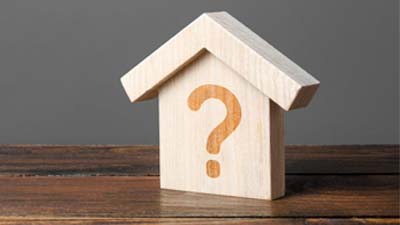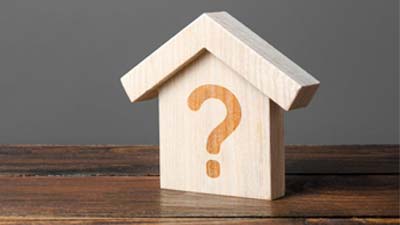Is paying off your mortgage early a part of your retirement plans?
Are you coming up to retirement and facing choices about what to do with your finances? You might be wondering under what circumstances retirees should or should not pay off their mortgage. We take a look at some of the questions you should ask yourself to help work out what’s the best option for you.
What are the benefits of paying off your mortgage before you retire?
Some of the benefits of paying off your mortgage before you retire are:
- You won’t have to budget for monthly repayments when your income changes from your salary to your pension
- You’ll have the freedom to spend that money on other things such as holidays or supporting family members
- You may be able to reduce the size of your overall debt through overpayment, refinancing or taking out equity release (especially if your house has significantly increased in value since you bought it). This can help with cashflow but does create a debt that will need to be paid later and may cost more in the long-term
- If you use refinancing or equity release to clear your mortgage, you could get access to cash that would otherwise be tied up in your property.
When does it make sense to pay off your mortgage before retirement?
Start by asking yourself the following questions about where you are with your money and where you see yourself in retirement – whether that’s cruising the high seas on a holiday of a lifetime, purchasing a new car or even helping family members get themselves on the property ladder.
Do you have any debts that are costing you more?
Personal loans, car finance and credit cards typically carry a higher interest rate than your mortgage. Paying these off first will reduce the overall amount of debt you owe.
Compare your mortgage interest rate with the rates on other debts and consider clearing the more expensive ones first.
Have you built a big enough pension?
If you’ve been planning your retirement, you’ll have a good picture of what funds you’ll get from any pensions you have. If you’ve done the sums and you’re confident you have enough invested for what you need, any capital you have spare could be used to pay off the mortgage early.
But if your pension pot could still do with a boost, you can take advantage of tax benefits by adding a lump sum or regular payments that will grow your pension before it’s time to retire.
Will your pension cover mortgage payments as well as other expenses?
If there’s enough cash in your pension to pay mortgage payments every month, then closing it out early may not need to be a priority. But if your planned pension won’t stretch to covering monthly repayments and your living expenses, you might want to prioritise paying your mortgage off now.
Do you have enough savings for a rainy day?
When you use savings to pay off your mortgage you won’t have those savings to use as an emergency fund if you’re faced with an unexpected illness, a family member who needs support, or have other things you want to spend the money on. It’s a good idea to have 3 to 6 months’ worth of living expenses saved to one side.
It’s also worth thinking about how much interest your savings are earning you before you use them to pay off your mortgage. If your savings are earning more interest than you’re paying on your mortgage debt, it makes sense to keep your savings as they are.
What’s your attitude to debt?
If you don’t like the idea of owing money in the long-term, then paying off such a large debt early could be worth considering if you have the means. It could give you peace of mind and help you ease into a relaxing retirement.
Are you 55 or over?
If you’re 55 or over and looking for ways to pay off your mortgage, you could look at using some of your personal pension or releasing some of the capital tied up in your home.
When you reach 55, many pension providers let you access some or all of your pension before you retire – the first 25% of your defined contribution pot is tax-free. While this might pay off your mortgage in part or in whole, this will reduce the size of your pension fund and mean you have less money to access later once you stop working.
Another option once you hit 55 is to take out equity release. There are two main types of equity release, a lifetime mortgage which is a loan secured against your home or a home reversion plan, which enable you to release a tax-free lump sum from the value of your home. This can be a way to pay off any outstanding mortgage without the commitment of future regular monthly payments but could end up costing more in the long-term. Equity release is an important decision and one that will reduce the value of your estate.

Saga Equity Release is a no obligation, no pressure advice service dedicated to finding out if equity release is right for you. It's provided by HUB Financial Solutions Limited. The Saga Equity Release team will help you find out whether equity release could help you and is for those aged 55 or over with a UK home worth at least £70,000.
Are there times when retirees should not pay off their mortgage?
Although paying off your mortgage early can make for a worry-free retirement, sometimes it might not be the best idea so it may be worth considering seeing a financial adviser to help you work out what's best for you. Some circumstances where you might not want to pay off your mortgage early include:
- You need to boost your pension fund: it might be better to use your money to make sure you’ll have enough to cover your living expenses in retirement
- You don’t have much cash in reserve: having access to a cash sum stored for a rainy day might make more sense than using capital to pay off your mortgage
- You have more expensive debts to clear: reducing the amount of interest you’re paying overall on credit cards, car finance or personal loans could save you more money than paying off your mortgage
- You face high early repayment charges: if you can’t pay off your mortgage early without incurring penalty fees for doing so, it might work out cheaper to continue with monthly payments
- You have other plans you want to prioritise: have you always wanted to see the world, set up in a new business venture or keep your plans more flexible and affordable? Now could be the best time to start.
How to pay off your mortgage early.
There are four main ways you can pay off your mortgage early:
- Overpayment: each year most mortgage providers allow you to overpay up to an extra 10% of your mortgage balance along with your monthly repayments. Paying off more than this can trigger fees, dependent on your mortgage agreement.
- Lump sum: an inheritance or a work bonus may mean you’ve got access to a lump sum that you could use to repay your mortgage. While this sounds like a good idea, you may be hit with early repayment charges that make it a less attractive option.
- Remortgaging: you might be able to find a mortgage that has better rates and conditions than your existing mortgage and switching could potentially save you thousands of pounds. But as you get closer to retirement you might find fewer available options and lenders may be more reluctant to lend.
- Downsizing: downsizing by selling and moving to a smaller, less expensive property can free up some extra cash.
- Equity release: if you’re aged 55 or over and have a UK property worth at least £70,000 you could consider equity release as a way to free up some of the capital tied up in your home to pay off your outstanding mortgage – and potentially give you some extra cash to make your retirement more comfortable
Ready when you are
The team at Saga Equity Release can help you decide whether equity release is right for you. Arrange a call back at a time that suits you.
Mon-Thu 9am - 6pm
Fri 9am - 5:30pm
Sat Closed
Sun Closed
Excluding bank holidays


Saga Equity Release
Provided by HUB Financial Solutions Limited
Find out all you want to know about equity release with expert advice.





